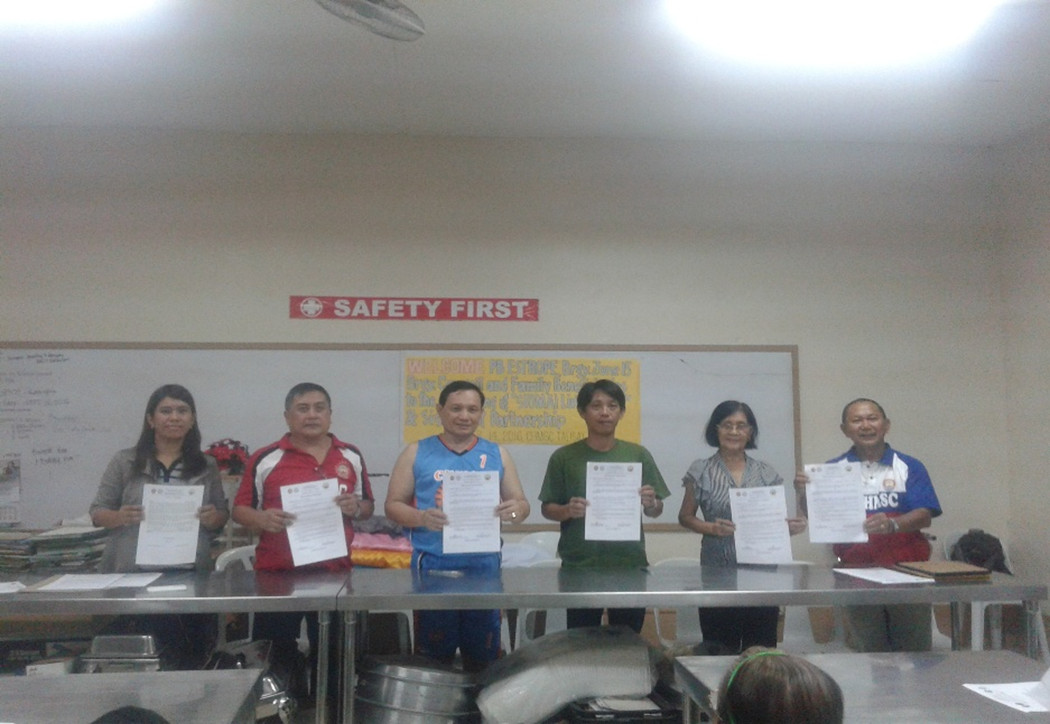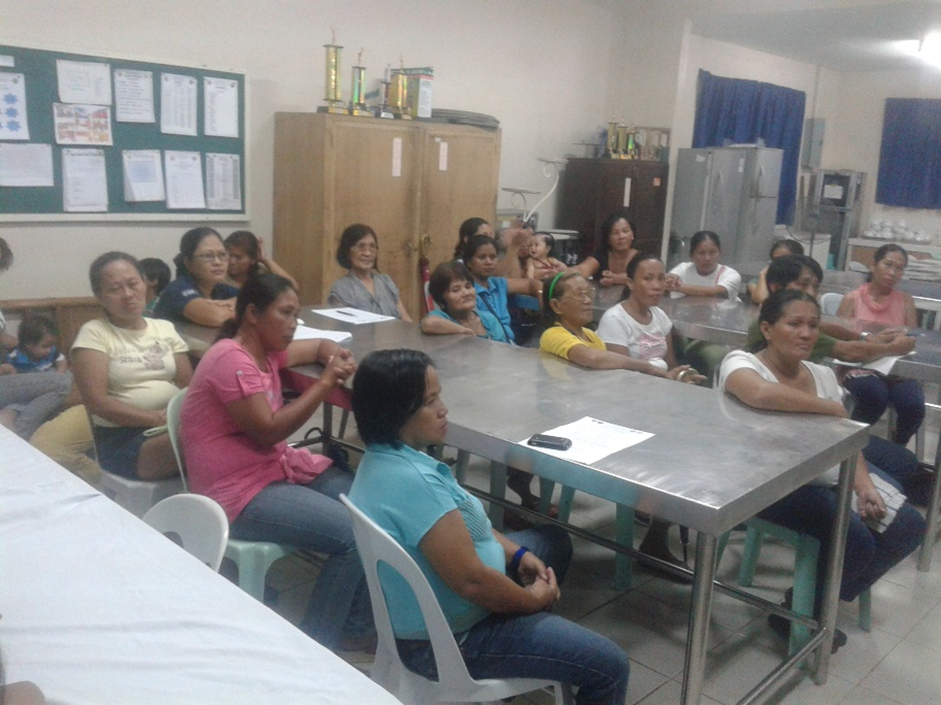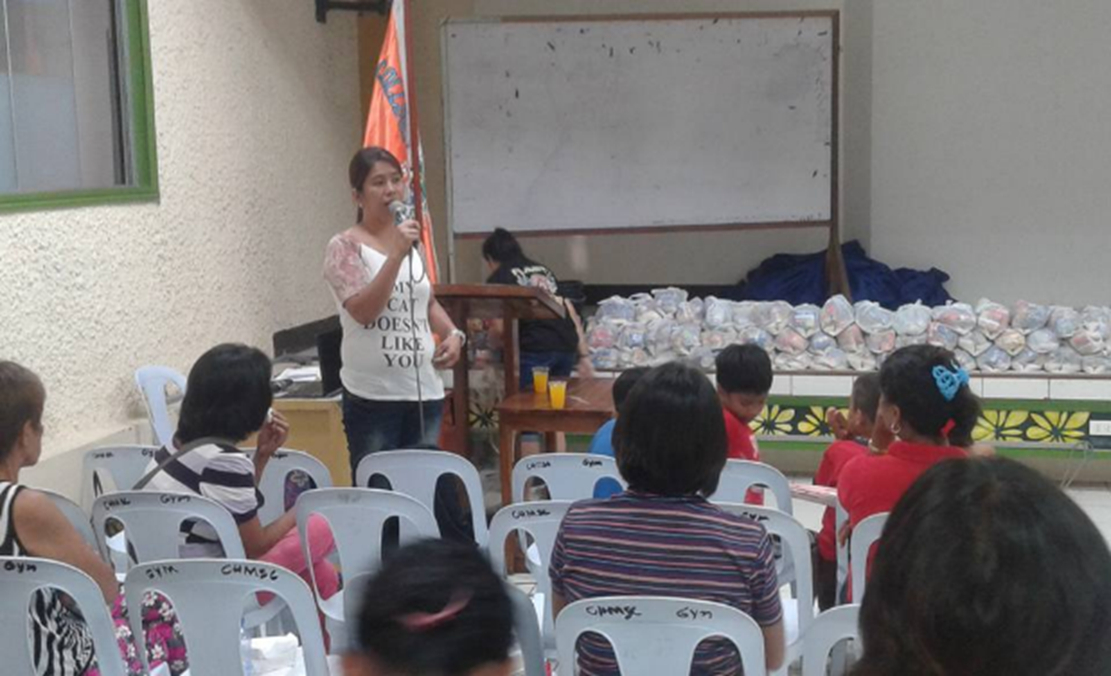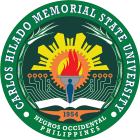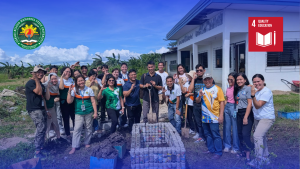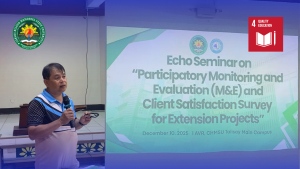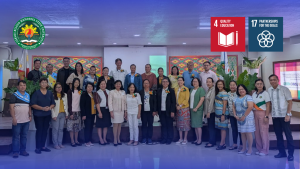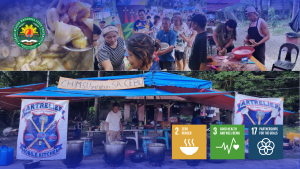Extension and Community Services
Ongoing Extension Projects
One of the institution's functions is the Extension and Community Services, in which the University provides an educational opportunity to people who are not enrolled as regular students. This is one way of helping the community increase their livelihood activities and earning capabilities.
Community Engagement Increased
There was a 6.67% change in number of partnerships with LGUs, industry, small and medium enterprises, local entrepreneurs, and other national agency engaged in developing, implementing, or using new technologies relevant to agro-industrial development.
In addition, there was a 9.98% change in number of poor beneficiaries of technology transfer or extension program and activities leading to livelihood improvement.
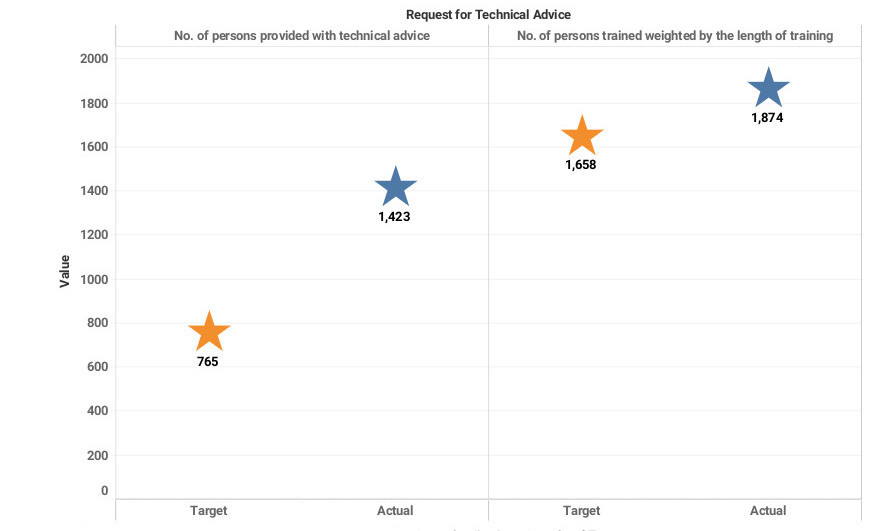
The institution strengthens its commitment to the advocacy of helping uplift the lives of beneficiaries through extension services. The following are the proposed extension programs:
- Siomai Livelihood Project
- Basic Water Rescue Training
- Basic First Aid and Rescue Training
- Mangrove Re-planting and Coastal Management
- Tree Planting (Fruit Tree) and Reforestation
- Mangrove Re-planting and Coastal Management
- Fire and Earthquake Drill
- Write shop on Extension Project Proposal
- Stakeholders Consultation for Extension Project Planning
- Livelihood in cooking
- Herbal with vertical gardening
- Literacy and Numeracy Training
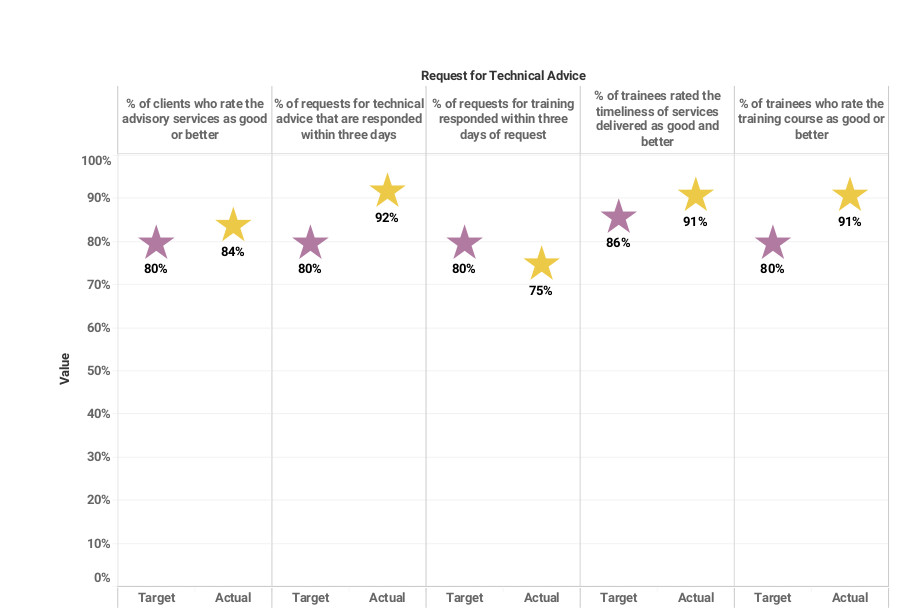
From Trash to Treasure: Bottle-Net Life Jacket
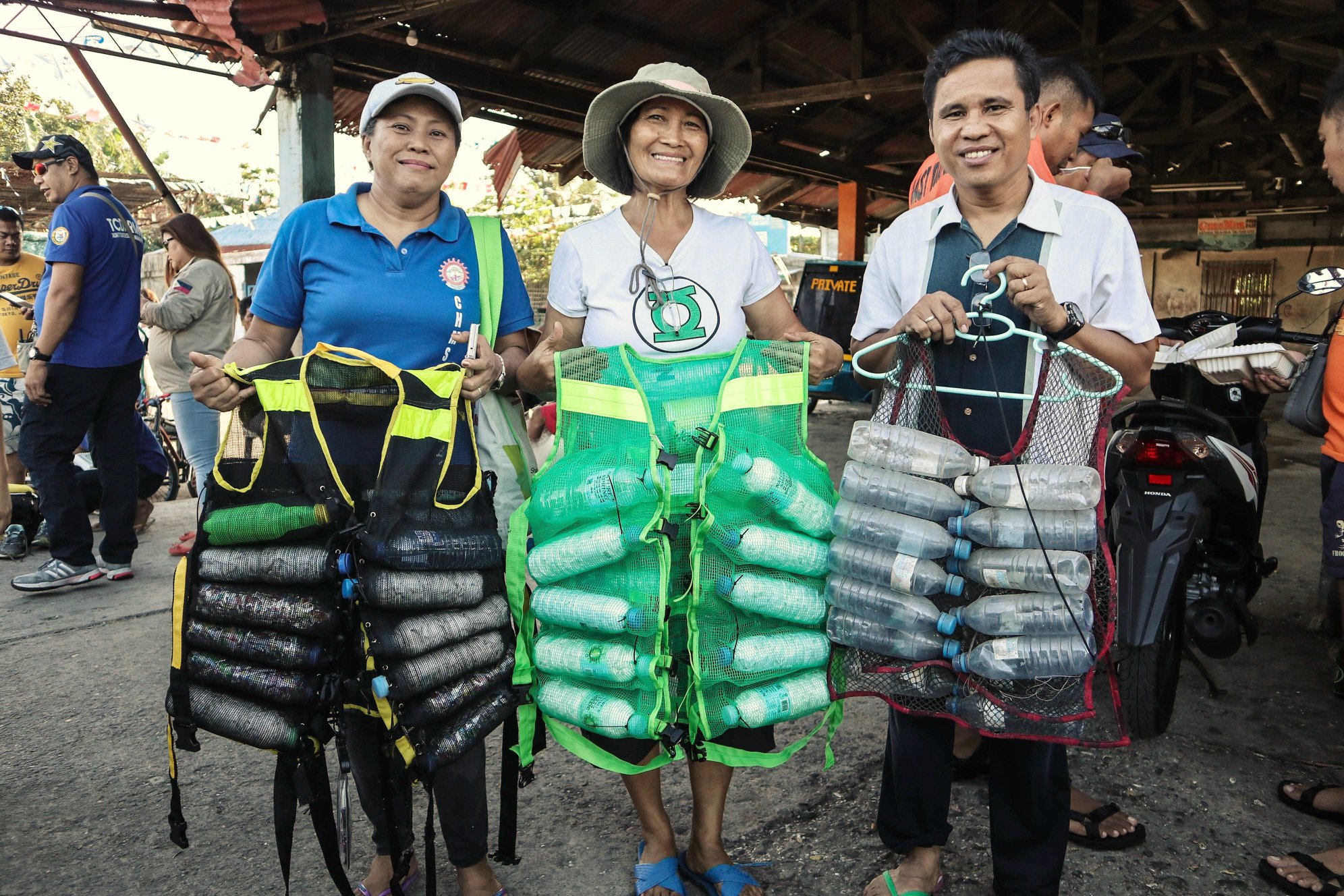
From trash to treasure
CHMSC is currently working with TUKLAS Innovation Labs to turn potentially harmful plastic bottle trash into low-cost lifesavers. The major beneficiaries of said lifesavers are partners from low income communities who also deserve quality disaster and risk reduction and management measures, such as what is currently being pilot-tested, a lifejacket made from plastic bottles, scrap nets, and other buoyant trash materials. These lifesavers should be very useful in times of flash floods or other water-related calamities.
A Lifeline from Floating Waste
by Rommel Azucena, Jr.
Imagine, it’s a beautiful day, you are sitting in the sand and blissfully watching the calm glistening waves hit the shore. After a while, you saw something shiny floating from a distance. You remembered those romantic books by Nicholas Sparks you read and thought about how there might be a love letter written for you. You stand up and excitedly approach the thing, only to be disheartened that not only there is no neatly rolled piece of love letter but it is a dirty plastic bottle with your name on it.
A plastic bottle takes a thousand years to degrade and broken fishing nets are one of the biggest polluters of the ocean. A 2015 report on plastic pollution by the Ocean Conservancy charity and the McKinsey Centre for Business and Environment ranked the Philippines as the third-largest source of discarded plastic that ends up in the ocean.
Advocates for the protection of environment thought about how this primary source of problem can help benefit the lives of people. Thus, Bottle-Net Life Jacket was born.
A brainchild of Engineer Rey Ramos of the College of Industrial Technology of Carlos Hilado Memorial State College (CHMSC), the Bottle-Net Life Jacket started as a passion to provide cheap and reliable means of safety precaution for the people especially to those living near coastal areas.
The Bottle-Net Life Jacket is a do-it-yourself personal floatation device (PFD) which uses recycled plastic bottles stuffed with plastic wastes and used fish nets gathered during coastal clean-ups. The plastic wastes were first sanitized, cut-up, and used to line the plastic bottles. This will serve as flotation device and protection for the wearer from any impact from collisions or debris. The rest of the jacket is also equipped with survival tools such as waterproof pocket for phones, a whistle, and a flashlight.
This innovation got the attention of TUKLAS Innovations Labs, a community centered organization that supports home-grown solutions that helps community better prepare for disasters. The project was awarded a funding of Php 1-million, with the promise of more, to help the project reach more areas.
Carlos Hilado Memorial State College in collaboration with Tuklas Innovations Labs, adopted the community of Zone 3, Bangga Baybay, Talisay City that benefited 1,911 families. Hesitant at first, the community members were put at ease once they realized that the life-jackets are comfortable, durable, and floats just as good as commercial life jackets.
“A regular life jacket can only keep you afloat for 24 hours, but this will help you stay afloat even for months”, Arlene Visitacion, from the CHMSC Research and Extension Department and the project’s current Community Engagement Officer said.
The project was one of the four (4) finalists selected from all over the world during the Global Innovation Demonstration Day of the Innovation Labs held last May 6 – 9, at London, United Kingdom.
It was during the event that Engr. Ramos found the perfect one-liner to describe his innovative project.
“A lifeline from floating waste”, he said.
Sources:
https://www.scmp.com/lifestyle/health/article/2168819/philippines-plastic-pollution-why-so-much-waste-ends-oceans
https://startnetwork.org/news-and-blogs/lifeline-floating-waste
Extension Programs
- Adult Education- English Just For Me
- CAS Cares Green Community Development and Wellness
- COC Community Counseling Project
- Philippine National Aquasilviculture Program
- Training Seminar on High Volume, Low Density Tilapia Fish Cages
- Food Cooking and Preservation Training Enriching Community Livelihood
- Pangabuhian Project
- Tulong Dunong Numeracy and Lliteracy Project
- Siomai Livelihood Project
- Seminar on Community
- Training on Basic Cooking and Basic Welding
- Waswas Panahi para sa Masulhay nga Pangabuhi
- Entrepreneurship and Livelihood Program
- Seminar Workshop on Gender Awareness
- Bagsyunista
- Pagtuon para sa buas damlag sang mga kabataan natun
- Tinabasan na Tela para sa Pangabuhian Project
- Green Thumb Project
- Skills Training on Computer Maintenance Program
- Pagkakaisa Program
- Save and Protect our Coastal Fisheries
- Luntiang Kamay, Kaagapay sa Buhay Program
- Panahi sa Balay para sa mga Nanay
- Coaches Educational Program
- Computer Hardware and Servicing for PNP Personnel
- Skills Training on Photographic Silk Screen
- Skills Training on Basic First Aid and Rescue
- Skills Training on Assembling Solar Cooker
- Skills Training on Solar Night Light Assembly
- Skills Training on Multimedia Graphic Design
- Skills Training on Photographic Silk Screen Printing
- Training on Vegetable Propagation and Organic Farming
- Integrated Eco-Farm
- Vegetable Gardening and Production Program
- Adopt-A-Mangrove Project
- Stitching Anak Negros Livelihood Skills Training
- Silay City SkillsTraining Project
- Vermi Composting Organic Fertilizer Program
CAS CARES Green Community
The CAS CARES Initiative is the brainchild of the College of Arts and Sciences Extension and Community Services. It is an output of the survey conducted in the identified partner barangay. The program is being managed by the Barangay Social Action and Wellness Center located in the heart of the partner barangay. The Barangay Social Action and Wellness Center serves as the implementing arm of the approved program component and projects that will be designed, proposed, and approved by the assigned Program Leaders and Members of the College of Arts and Sciences in five areas namely::
C – Counseling and Psychological Wellness
A – Adult and Adolescent Education
R – Resource Generation
E – Environmental Protection and Preservation
S – Social Action and Sports
The program hopes to impact the economic, personal, social, emotional, and psychological well–being of the beneficiaries in the partner barangay.
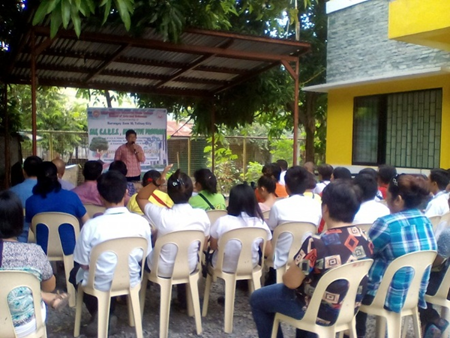
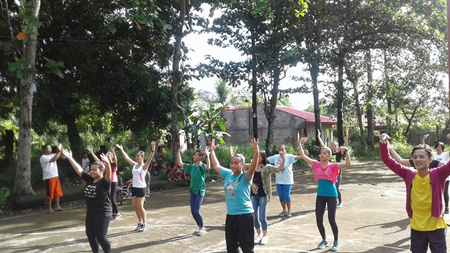
COC Community Counseling Project
As a response to the study of the College of Arts and Sciences on the Developmental Needs Index of Partner Community: Mapping Out Responsive Priorities, the most preferred intervention of the partner Barangay Zone 10, Talisay City is Professional Counselling.
Aileen Alvarez-Tranquilo, RGC, a guidance counselor, extended the services of the College of Arts and Sciences Extension and Community Services to the partner barangay Zone 10, Talisay City. This community aims to serve our partner who are ready to work with us in meeting our goals in the academe. Guidance counselors Maria Luna Dela Cerna, RGC, Nick Alayon, RGC, and Antonia Sitiota, RPm will serve as community counselors while Joel Valencia, PhD, Art Alegarbes, Marijo Chua, and Ricky Acanto will serve as seminar and training facilitators.
Community counselors play a vital role in society by helping countless clients as they try to bridge the gaps between the lives they are currently living and the lives they seek. Community counselling will greatly help in improving our community’s way of dealing with problems.
Under the Memorandum of Agreenment signed by Renato Sorolla, PhD, SUC II President of CHMSC and Aristotle Tuvilla, Barangay Captain of Zone 10 Talisay City, the CAS CARES Program has been implemented with the COMMUNITY COUNSELING (COC) PROJECT: Developing a Green Community.
Philippine National Aquasilviculture Program
Act to Prevent, Deter, and Eliminate Illegal, Unreported, and Unregulated Fishing, Amending Republic Act No. 8550, Otherwise Known As "The Philippine Fisheries Code Of 1998," at Purok 2 Croshed, Brgy. Linaon, Cauayan, Negros Occidental dated April 30, 2016, with 164 beneficiaries. With the expertise of Prof. Mario N. Abeto and Prof. Noel Lebrilla both PNAP coordinator who serves as resource speakers of the said activity.



Training Seminar on High Volume, Low Density Tilapia Fish Cages
Gemora – Chua Agrarian Reform Cooperative (G-CARC), a duly registered cooperative, adopted and established four (4) 27m3 (3m x 3m x 3m) High Volume Low Density (HVLD) floating fish cages technology stocked with tilapia from the finfish hatchery at Binalbagan Campus.
Partial harvest, which was conducted after ninety days of culture, reaped Php 12, 530 in gross sales.
Binalbagan Campus conducted a training seminar on High Volume Low Density (HVLD) floating fish cages technology and Aqua Silviculture Projects at 3J’s Beach Resort, Bulata, Cauayan, Negros Occidental.
Speakers were Prof. Roger Ray S. Manzano, Dr. Heide G. Taleon, Dr. Mario N. Abeto, Prof. Noel N. Lebrilla, Prof. Desiderio E. Omen, Jr. and Prof. Rolando T. Esparagoza.
The training seminar was attended by a total of sixty beneficiaries of G-CARC, Linaon Sustenance Fisherfolk Association, Caliling Environment Friendly Production Association, Philippine Reef and Rainforest Conservation Foundation, Incorporated and private fish cage operators.
HVLD fish cage project is located at Biga-a Dam while Aqua Silviculture – Mudcrab Project is located at the Danjugan Island, Bulata, Cauayan, Negros Occidental.
Food Cooking and Preservation Training Enriching Community Livelihood
One of the mandates of Carlos Hilado Memorial State College is Extension.
Extension programs help alleviate the condition of depressed individuals in our community.
More than 40 beneficiaries consisting of unemployed mothers of Purok Tayabas, Zone 15, Talisay City, Negros Occidental, attended the launching of the Siomai Livelihood Program conducted by Maricel T. Daradar, College of Industrial Technology Coordinator last October 14, 2016. Also present were the CIT faculty members, Antonio L. Deraja, PhD, College of Industrial Technology Dean, and Renato M. Sorolla, PhD, CHMSC SUC President III.
In its second phase, the Siomai Livelihood Program provided siomai-making training to mother beneficiaries a few years ago. The said livelihood program is under the Bachelor of Science Industrial Technology (BSIT), one of the College of Industrial Technology programs.
